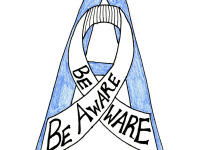Every October we see an outburst of pink ribbons to symbolize Breast Cancer Awareness month, one of the leading causes of death among women. We all know what it stands for when we see football players on the field wearing pink, but what we see far less are the purple ribbons. In addition to the highly respected breast cancer awareness campaign, it is also Domestic Violence Awareness month, another high cause of death among many women who are victims of abusive relationships.
This past September marked the 20th anniversary of the Violence Against Women Act (VAWA), a federal law passed by Congress. Esta Soler, a leading expert in violence protection and the founder of “Future Without Violence”, was one of several passionate advocates in 1994 who pushed for the VAWA bill to pass. Soler recently spoke about the positive changes we have made since VAWA over the past two decades.
Soler stated that the national domestic violence hotline has received over 3 million calls since 1996, and 92% of callers admit it’s their first call for help. Between the years of 1993-2010, the rate of violence between intimate partners has declined 67% according to the White House fact sheet. In addition, the fact sheet also concluded from 1993-2007, the rate of intimate partner homicides of females decreased 35% and the rate of males decreased 46%.
However, the well known and shocking example of domestic violence involving Ray Rice and his wife Janay is a good example of how there is still much work to be done in educating the public about awareness and how to help someone involved in a violent relationship. It is both unfortunate and sad that it takes a horrific incident involving professional athletes and celebrities to shock the public enough to bring this issue back into the spotlight. It is important to take advantage of this time to educate others.
We all want to do something to make a difference, but we don’t always know how. In a recent interview with TIME, Esta Soler laid out 6 things the nation can do right now to address the issue of domestic violence:
- Confront college sexual assault
- Bring young people into the equation
- Stand up for rape culture
- Bring men into the conversation
- Hold sports organizations accountable
- Keep talking about it
If you, or anyone you know of is a victim of domestic violence, it is important to seek help immediately. We advise that you contact police authorities, or an attorney if you have any questions or need legal guidance in your unique situation.
Contact DOVE’s 24 hour hotline at 617-471-1234 for women in MA who are experiencing domestic violence.
-Libby Mouradjian


